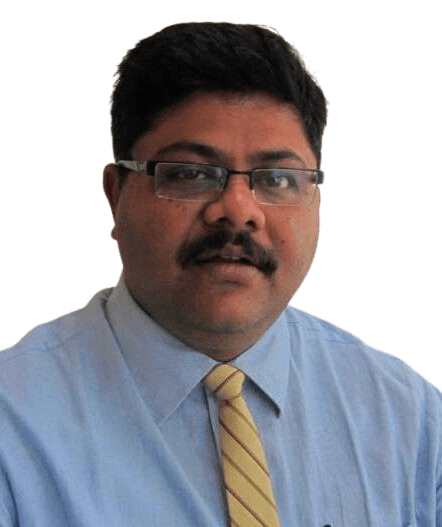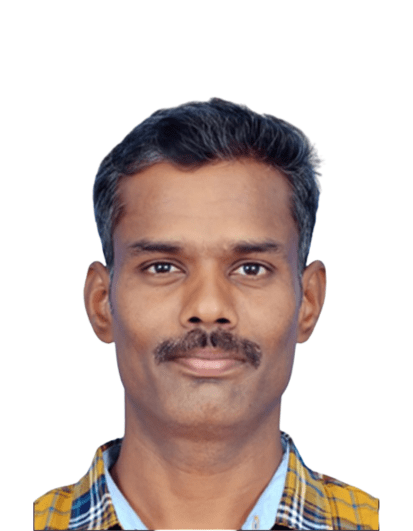The THRIVE project is incredibly grateful to Yelysaveta Demydenko, Madhukar Swayambhu, and Rajesh Kumar for their captivating presentations during the June 2024 Thrivability Matters Webinar. This webinar focused on the United Nations Sustainable Development Goal 6 (SDG6): Clean Water and Sanitation & The Biosphere. With their vast knowledge, our presenters caught our attention, highlighting crucial issues surrounding our most precious resource, and inspired us to make a difference.
About The June 2024 Speakers

Based in Stockholm, Yelysaveta Demydenko brings over six years of expertise in water and environmental law. A critical figure in her field, she works closely with the Global Water Partnership (GWP) on SDG 6 (Clean Water and Sanitation) and Transboundary Water Cooperation. Specialising in identifying policy bottlenecks, facilitating dialogues, and enhancing water governance capacity, Yelysaveta provides invaluable insights into the complexities of global water management. Previously, she conducted ground-breaking analyses on the environmental impacts of armed conflicts on water and energy in Ukraine.
With a background in sustainability and environmental innovation, Madhukar Swayambhu is the co-founder and research head of Vaidic Srijan LLP, a climate tech start-up in India. Focused on finding sustainable and holistic solutions to global problems, Madhukar is a leader in his field. Recognized as a Global Top 3 author on water by Spain’s Smart Water Magazine, he also created ‘Cownomics Technology,’ which contributes to soil, water, and air restoration. His inspiring journey highlights how innovative minds can positively impact our environment.


Bringing nearly 19 years of experience in ESG leadership and climate action, Rajesh Kumar has collaborated with prestigious organisations such as Michelin Tyres, Renault, Nissan, Pricol, and TVS. His projects include carbon footprint management, water risk assessment using the GEMI tool, zero liquid discharge systems, and sustainable waste management. Rajesh is deeply passionate about sharing his insights with aspiring sustainability professionals and organisations, aiming to make a meaningful impact.
Summary Of The June 2024 Webinar
As an organisation, the THRIVE Project endeavours to guide humanity towards a more sustainable future. We had the privilege of hosting these three speakers as guest presenters for our webinar.
Yelysaveta Demydenko –“Measuring the effectiveness of water policies through SDG 6 indicators 6.5.1. & 6.5.2”
Yelysaveta discussed the Global Indicator Framework, which consists of voluntary and country-led tools used to monitor global progress toward the Sustainable Development Goals (SDGs). During a review, Yelysaveta and her team pointed out a significant issue regarding the current SDG 6 indicators—they lack environment-specific legal indicators. Currently, only 15 out of 169 targets refer to law in general, while just 93 out of 231 indicators address environmental matters.
Indicators 6.5.1 and 6.5.2 are used to measure Integrated Water Resources Management (IWRM) implementation.
- Indicator 6.5.1 measures the degree of implementation of integrated water resources management, using a scale from 0 to 100.
- Indicator 6.5.2 focuses on the proportion of transboundary basin areas that have operational arrangements for water cooperation.
The validity of indicators like 6.5.1 and 6.5.2 depends heavily on widespread participation due to their voluntary nature. Yelysaveta delved into the reporting process and highlighted the great work done by the SDG 6 IWRM Support Programme. This program is instrumental, providing direct assistance to 67 countries and over 4000 stakeholders, with a focus on streamlining and simplifying the reporting process.
Yelysaveta shared insights from the latest report, indicating that the IWRM implementation score reached 57% in 2023. Globally there has been an average growth of 8% between reporting periods. If this trend continues, we are on track to achieve the global target score of 91% by 2049, which is 19 years behind the schedule set for 2030. However, there has been a notable global increase in the implementation of sustainable water management.
Despite progress in sustainable water management, Yelysaveta emphasized the need to accelerate our efforts and increase the pace to meet our goals more effectively.
Madhukar Swayambhu on “ Waterpreneurship”
Madhukar kicked off his presentation by expressing his profound love and fascination for water. Going beyond its conventional perception as a mere liquid, he delved into the intricate scientific aspects that make water truly majestic. Madhukar explored its contradictory nature with the condensation contract, its unique patterns of movement, its perpetual struggle with gravity, and even its surprising ability to retain memory.
India currently operates some of the world’s largest water access programs, with a total allocation of $240 billion in 2023. During his presentation, Madhukar elaborated on the various governmental arms, schemes, and projects dedicated to achieving sustainable water management. He also introduced us to the concept of ‘Aqua economy’, which encompasses both the immediate and peripheral sectors of the economy that are heavily reliant on water.
Madhukar challenged us to view contaminated water bodies as “sick”, emphasising the need for restorative treatment. This perspective encourages greater support directed towards nature-based solution like ecosystem restoration and shifting the focus away from the conventional solutions such as sewage treatment, rainwater harvesting and water body desilting. He strongly believed that through mitigation, conservation and maintenance practices we could heal the ecosystem and our water.
Rajesh Kumar “Water is centric to the whole ecosystem”
Rajesh commenced his presentation with a powerful quote by Thiruvalluvar, dating back over 2000 years, underscoring the vital role water has always played in our existence. Despite 71% of the Earth’s surface being covered in water, only 3% of it is freshwater, and a mere 1.2% is actually drinkable. This scarcity has resulted in global water stress, highlighting the critical need for sustainable water management.
Water stress is when the demand for water exceeds the available amount, and typically occurs below 1,700 cubic metrics per capita, per year. It’s predicted that by 2040 water stress will be globally experienced, with a significant number of countries suffering from extremely high levels of stress. Rajesh went on to illustrate the harsh living conditions in his home of India, where 54% of the country faces extremely high water stress already.
Rajesh drew upon his vast experiences in the industrial sector, it’s heavy reliance on water as a resource and the growing need for both political and social progress to ensure sustainable practices are being upheld. Using a vivid example, he virtually transported us to a riverway in his hometown that had suffered years of illegal sewage dumping. This pollution had led to the proliferation of diseases such as Dengue, Typhoid, and Cholera in what was once a clean river. Unfortunately, this case is not unique, as over 80% of the world’s wastewater is released into the environment without undergoing treatment.
He took an in-depth look into a range of innovative methods used amongst the industrial sector including water conservation practices, stormwater collection pods, watershed management, sewage water treatment and wastewater management. These methods have been shown to not only promote biodiversity but also contribute significantly to water restoration efforts.
Rajesh concluded by emphasizing that “Water sustainability is a shared agenda that requires a collective response”. He encouraged us as individuals to contribute by educating ourselves and understanding the importance of water in our lives.
Moving Forward From June 2024
At the webinar, attendees were invited to take part in an interesting citizen science project titled ‘Be a Water Hero‘, aimed at identifying and addressing common household water leakage issues. This study seeks to gather valuable insights from homeowners and to develop more effective conservation strategies. If you want to get involved in this project, simply follow this link to register and become part of a movement dedicated to preserving our most precious resource. Those that participate will benefit from expert insights and practical guidance into how to save on their water bills.
The Thrivability Matters Webinar for June 2024 showcased insights from Yelysaveta Demydenko, Madhukar Swayambhu, and Rajesh Kumar in achieving SDG6. If you missed the presentations or the live Q&A session, you can view the recordings on our YouTube channel or download the PDFs from each of the speakers.
If you are interested in joining us soon at a Thrivability Matters Webinar, there are a variety of avenues you can take. One way of keeping up with us is via social media platforms, such as LinkedIn, X, Instagram, and Facebook. However, you could subscribe to our YouTube channel, listen to our podcasts, sign up to our newsletter, stay up to date with our blogs, attend our free webinars, or even join us as a volunteer to make an even bigger difference in this world.
Interested in Innovation, Industry, & Infrastructure?
Want to be kept in the regenerative loop with THRIVE?
Got more questions?
Ask an expert!























